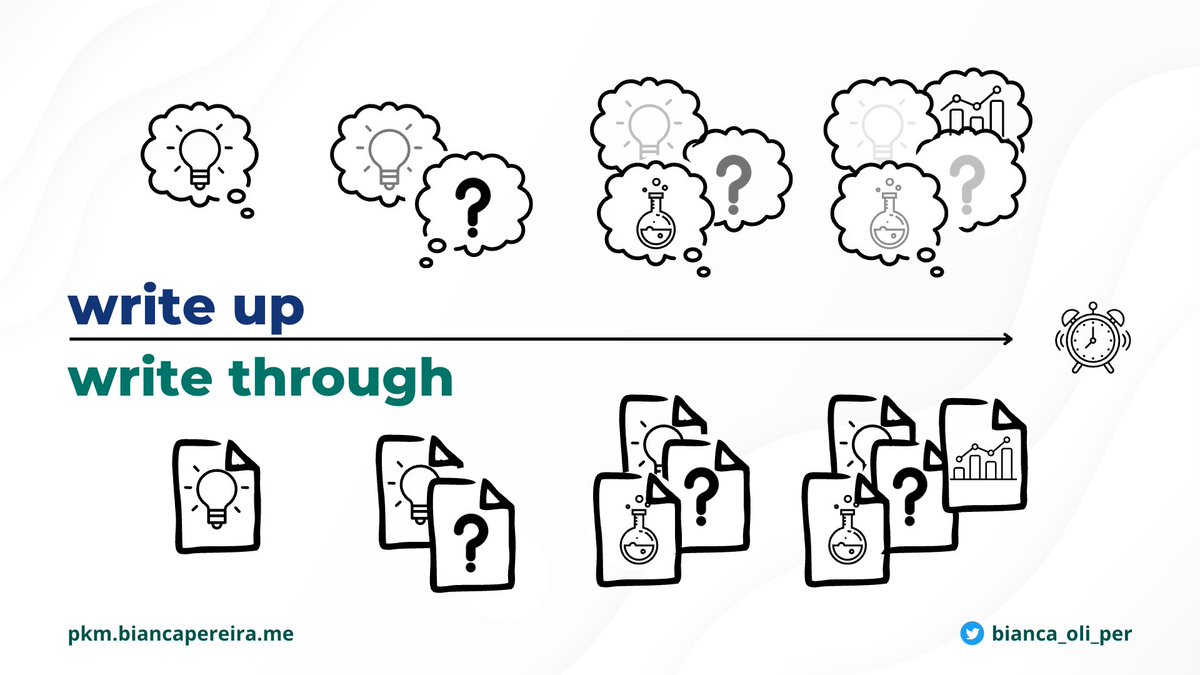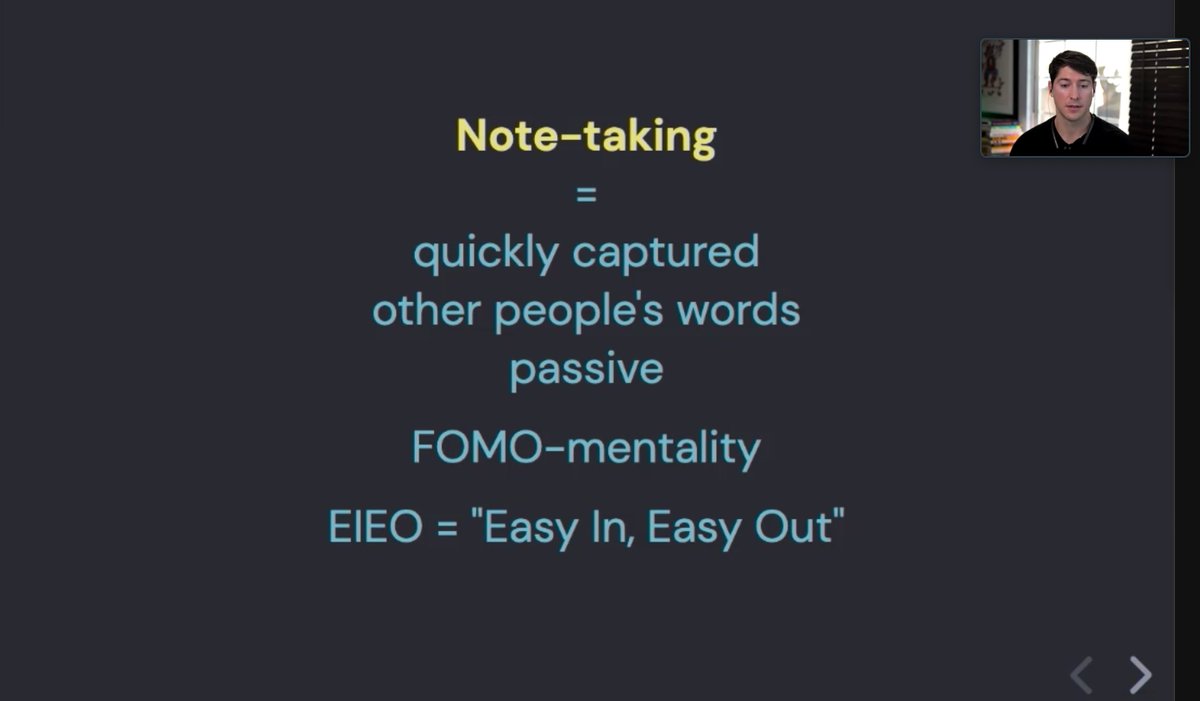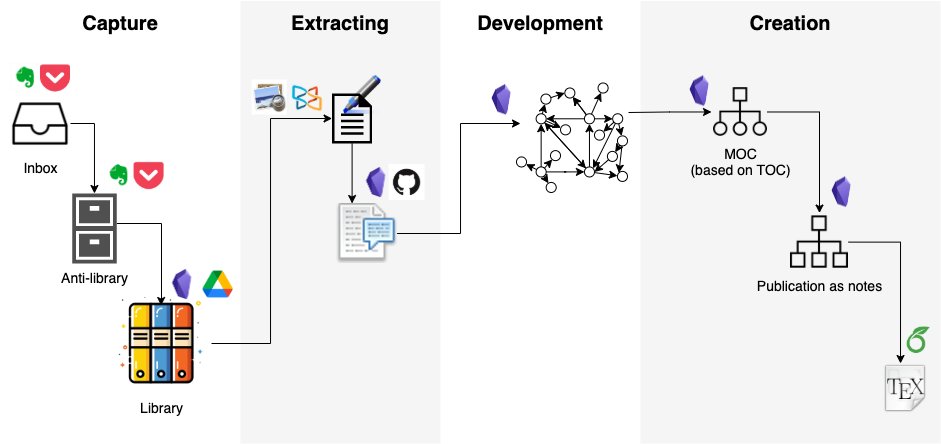
Helping you develop a personalised knowledge practice that suits your research style | Trainer + Knowledge Management Coach + Researcher | 250+ happy clients
7 subscribers
How to get URL link on X (Twitter) App





 1/ Folder-based Reference Management
1/ Folder-based Reference Management
 Most people believe that the writing process consists of 2 phases:
Most people believe that the writing process consists of 2 phases:




 1/ Freewriting
1/ Freewriting
https://twitter.com/NickMilo/status/1567180858053861377So.. what is the difference between Zettelkasten and LYT @thehighpony?

https://twitter.com/NickMilo/status/1567165770714554369Anne-Laure (@anthilemoon) talks about the generation effect:

https://twitter.com/NickMilo/status/1567158184904638467Note making is to just capture other people's words.





https://twitter.com/bianca_oli_per/status/1414859331133222917?s=19

 The first (and hardest) step in building a publication is to create the argument (or "line of thinking").
The first (and hardest) step in building a publication is to create the argument (or "line of thinking").
 We need to be able to demonstrate our contributions in each paper.
We need to be able to demonstrate our contributions in each paper.